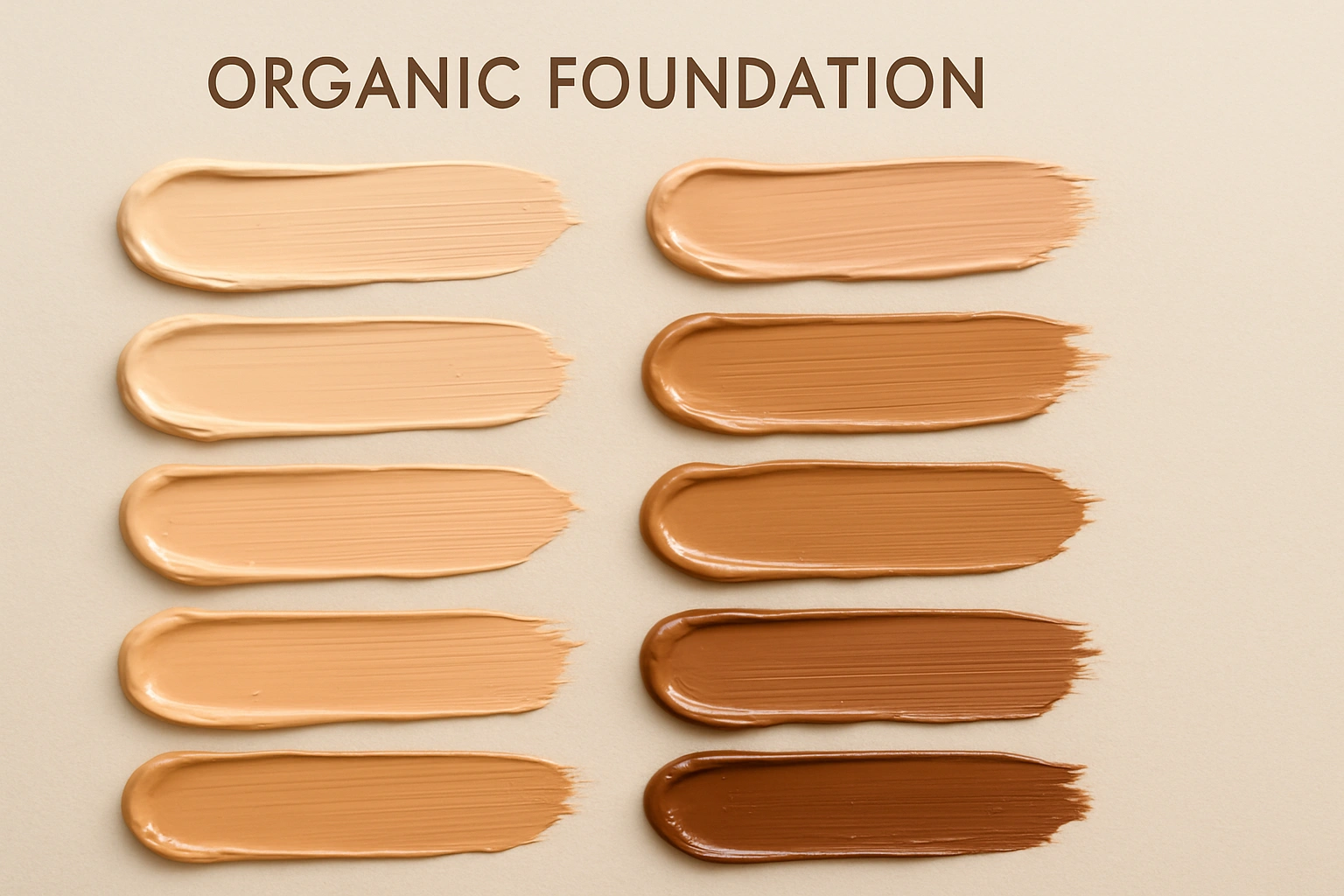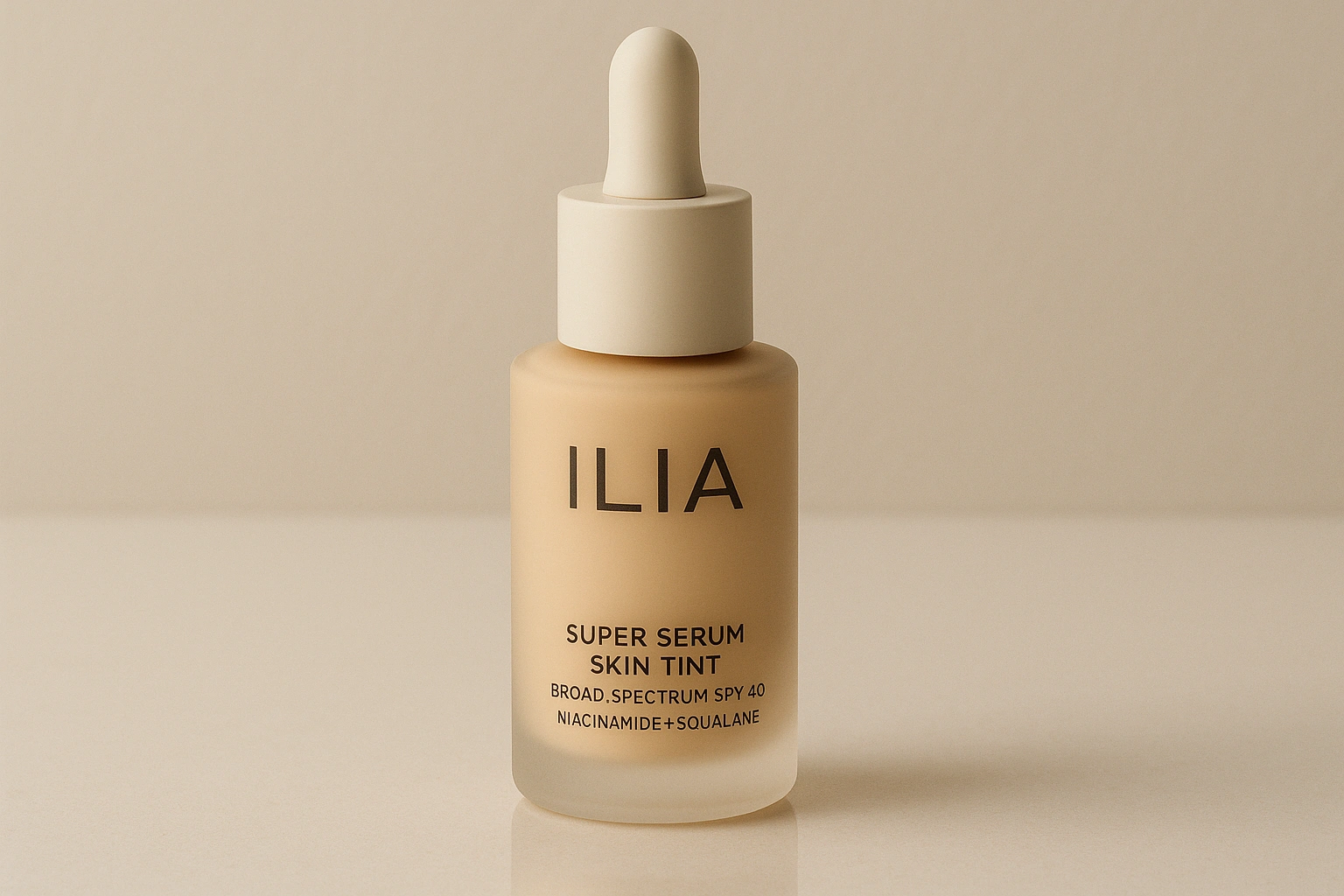Have you ever felt like your foundation is hiding your skin instead of enhancing it? You’re not alone in the quest for a base that feels as good as it looks.
The search for the perfect foundation can feel endless, but the clean beauty revolution has introduced a new star player: organic foundation. This isn’t just makeup; it’s skincare in disguise, packed with nourishing ingredients that benefit your complexion. If you’re tired of heavy, pore-clogging formulas, this guide to the best **organic foundation makeup** is your answer. We’re diving deep into the products that deliver a radiant, second-skin finish without any of the toxic baggage.
By the time you finish this article, you will have a curated list of top-performing organic foundations, understand how to choose the right formula for your skin type, and be ready to achieve that coveted natural glow.
- What Defines an Organic Foundation?
- The Skin-Deep Benefits of Going Organic with Your Foundation
- Top 3 Organic Foundations for a Natural Finish
- Foundation Comparison: Find Your Perfect Match
- Mistakes to Avoid When Choosing an Organic Foundation
- Expert Tips for a Second-Skin Finish
- Frequently Asked Questions (FAQ)
- Embrace Your Best Skin with Organic Foundation
What Defines an Organic Foundation?
An organic foundation is a base makeup product formulated primarily with certified organic ingredients. This means the plants used were grown without synthetic pesticides, GMOs, or artificial fertilizers. It’s a step beyond “natural,” offering a guarantee of purity and adherence to strict agricultural and processing standards. These foundations swap out silicones, parabens, and synthetic dyes for skin-loving botanicals, minerals, and plant-based oils.
The trend is clear: consumers are moving away from chemical-laden cosmetics. The global market for organic and natural cosmetics is booming, a testament to a collective desire for safer, more transparent products. As highlighted by market analyses on platforms like Statista, this isn’t just a niche market anymore; it’s the future of beauty.

The Skin-Deep Benefits of Going Organic with Your Foundation
Choosing an organic foundation is one of the most impactful switches you can make in your beauty routine. Since it’s a product that covers a large surface area of your skin for hours at a time, its ingredients matter immensely.
It Lets Your Skin Breathe
Unlike conventional foundations that often use silicones to create a smooth finish (which can trap debris and clog pores), organic formulas use breathable ingredients like mica and plant oils. This is a game-changer for preventing breakouts and congestion.
Nourishes While It Covers
The best organic foundations are packed with active skincare ingredients. Think of them as a daily treatment for your skin.
- Aloe Vera Juice Base: Hydrates and soothes inflammation.
- Jojoba & Rosehip Oils: Moisturize and provide essential fatty acids for a healthy skin barrier.
- Fruit Pigments: Offer antioxidant benefits to protect against environmental stressors.
Perfect for Sensitive and Problematic Skin
Without harsh chemicals, synthetic fragrances, and preservatives, organic foundations are inherently gentler. They are often the holy grail for those with rosacea, eczema, or acne, as they help to calm the skin rather than exacerbate irritation. This focus on gentle, effective formulation is a key principle in modern product design, a philosophy also embraced in advanced fields like those at AI Robotics.
Top 3 Organic Foundations for a Natural Finish
We’ve reviewed the top contenders to find the foundations that offer beautiful coverage, skin benefits, and clean ingredient lists. Here are our 2025 winners.
1. ILIA Super Serum Skin Tint SPF 40
This product redefined the foundation category. It’s a lightweight serum, a mineral SPF, and a foundation all in one. It provides dewy, light coverage that evens out skin tone beautifully while packing a punch with ingredients like hyaluronic acid, plant-based squalane, and niacinamide.

| Pros | Cons |
|---|---|
| High SPF protection | Very dewy finish may not suit oily skin |
| Improves skin over time | Has a distinct natural scent |
2. Vapour Organic Beauty Luminous Foundation
For those who love a stick foundation, Vapour is a pioneer. This formula offers buildable light-to-medium coverage with a satin, soft-focus finish. It’s crafted with 70% organic ingredients and 30% mineral pigments, including soothing frankincense, antioxidant-rich tulsi, and moisturizing lotus.
| Pros | Cons |
|---|---|
| Easy, portable application | Stick format may not be for everyone |
| Beautiful luminous (not glittery) finish | Shade range could be more inclusive |
3. 100% Pure Fruit Pigmented Cream Foundation
This foundation delivers full, lasting coverage with a creamy, moisturizing formula. True to its name, it derives its stunning pigments from fruits and vegetables like peaches and apricots. It’s a fantastic option for those looking for a high-performance **vegan base cosmetic** that can cover redness and hyperpigmentation.
| Pros | Cons |
|---|---|
| Full coverage with a natural finish | Thicker consistency requires good blending |
| Rich in skin-protective antioxidants | Packaging feels less luxurious |
Foundation Comparison: Find Your Perfect Match
| Foundation | Coverage | Finish | Best For Skin Type |
|---|---|---|---|
| ILIA Skin Tint | Light | Dewy | Normal to Dry |
| Vapour Luminous | Light to Medium | Satin / Luminous | All Skin Types |
| 100% Pure Cream | Medium to Full | Satin / Natural | Normal to Combination |
Mistakes to Avoid When Choosing an Organic Foundation
- Not Prepping Your Skin: Organic foundations perform best on a smooth, hydrated canvas. Always moisturize first.
- Using the Wrong Primer: Avoid silicone-based primers, as they can cause pilling. Opt for a natural, hydrating primer.
- Applying Too Much Product: These formulas are often rich in pigment. Start with a small amount and build up only where needed.
- Incorrect Application Technique: For serums, fingers work best. For creams and liquids, a damp beauty sponge or a dense foundation brush gives a flawless finish.
- Forgetting to Set It: If you have oily skin or want extra longevity, a light dusting of a translucent organic setting powder is key.
Expert Tips for a Second-Skin Finish
Achieve a professional-looking application with these tips from the experts.
- Customize Your Coverage: Mix a drop of foundation with your moisturizer for a sheer tint, or with a drop of facial oil for extra glow.
- Apply in Thin Layers: This is the secret to avoiding a cakey look. Press and stipple the product into the skin rather than rubbing.
- Use a Hydrating Mist:
“I always finish an organic foundation application with a spritz of a rosewater or aloe-based facial mist,” says makeup artist Chloe Franklin. “It melts the makeup into the skin and gives the most beautiful, seamless glow.”
- Spot Conceal After: Apply your foundation first, then go in with a matching organic concealer to cover any blemishes that are still visible.
Frequently Asked Questions (FAQ)
Q: What is the best type of organic foundation for acne-prone skin?
A: For acne-prone skin, look for non-comedogenic liquid or serum foundations that contain skin-soothing ingredients like aloe vera or tea tree oil. Mineral powder foundations are also an excellent choice as they are breathable and less likely to clog pores.
Q: How do I find the right shade of organic foundation online?
A: Many organic brands offer sample kits or have online shade-matching tools. It’s also helpful to read reviews and look at customer photos. Pay attention to the undertones (cool, warm, or neutral) described by the brand to find your perfect match.
Q: Can organic foundation provide full coverage?
A: Yes, absolutely. While many organic foundations are known for a natural, dewy finish, brands like Juice Beauty and Vapour Organic Beauty offer buildable to full-coverage options that can cover blemishes and hyperpigmentation without looking heavy.
Q: Is organic foundation makeup better for mature skin?
A: Organic foundations are often ideal for mature skin because they are formulated with hydrating and anti-aging ingredients like hyaluronic acid and plant-based oils. They tend to be less drying and are less likely to settle into fine lines compared to conventional foundations.
Q: Are all organic foundations also vegan?
A: Not necessarily. While many are, some organic foundations may contain ingredients like beeswax or carmine. If you’re looking for vegan base cosmetics, always check for a ‘vegan’ certification in addition to the ‘organic’ one.
Embrace Your Best Skin with Organic Foundation
Choosing the right **organic foundation makeup** is a transformative step towards a healthier beauty routine. It’s about celebrating your skin with formulas that enhance, protect, and nourish. With the incredible quality and performance of today’s clean beauty products, you no longer have to sacrifice results for safe ingredients. Make the switch and discover how a truly great foundation can let your natural radiance shine through.
Have you tried any of these foundations? Share your experience in the comments below!
